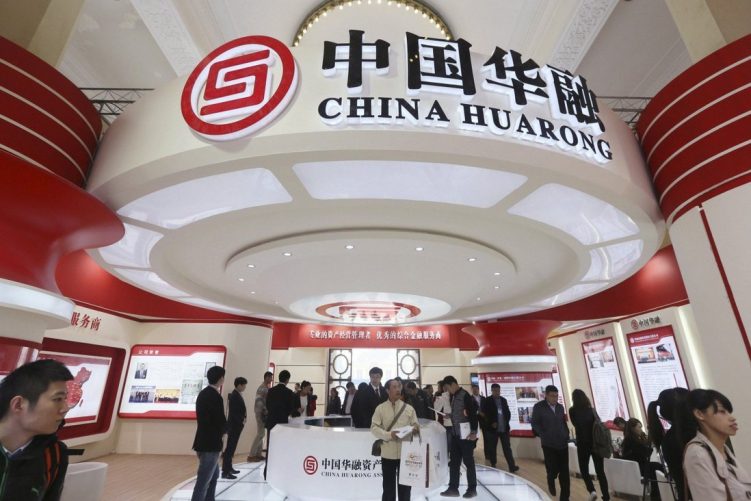Chinese state-owned asset manager China Huarong Asset Management sought on Monday to turn the page on a $16 billion annual loss, as its chairman said it was in talks with potential new strategic investors alongside a Citic-led consortium.
Wang Zhanfeng, on an earnings call, said many investors continue to have faith in Huarong, and that it was speaking with potential new domestic and foreign strategic investors.
Earlier this month, the indebted company announced a state-backed rescue plan led by the Citic Group Corp after it warned investors of a 2020 net loss of 102.9 billion yuan ($15.91 billion).
Huarong, one of China‘s four state distressed debt managers, with the Ministry of Finance as its largest shareholder, released its final 2020 results on Sunday following a nearly five-month delay.
“We need to turn from quick profits, to long-term profits, to hard-earned profits,” Liang Qiang, executive director of Huarong, said on the call, alluding to the company’s rapid expansion under its former chairman Lai Xiaomin.
Lai was executed in January following one of China‘s highest-profile corruption cases.
Huarong executives emphasised what they said was a more stable outlook for the company focused more on its core business. They said the company’s offshore unit, Huarong International, would remain a strategic platform, and they believed it would continue to improve its asset structure and that its financial indicators would recover.
The company would decide whether to roll out a refinancing plan for dollar-denominated debt based on its credit recovery process, its operational and developmental needs, as well as regulatory approval, they said.
A decision on whether to buy back outstanding perpetual bonds would also be based on the operational situation of subsidiary China Huarong International Holdings Ltd as well as contracts and deals made with creditors, they said.
The mid-price on 4% perpetual bonds issued by subsidiary Huarong Finance 2017 Co Ltd rose about 1 cent to 94.781 following the call, according to data from Duration Finance, compared with a low of below 53 cents in May.
• Reuters and Jim Pollard
ALSO SEE:
Moody’s Downgrades China Huarong Over $16 Billion Loss
Huarong panic may prompt China sovereign wealth fund move
Former top banker executed in China for huge graft scandal
























